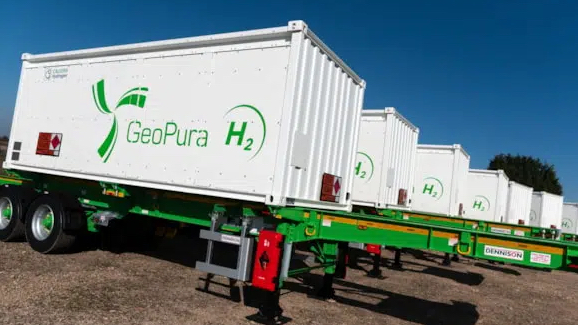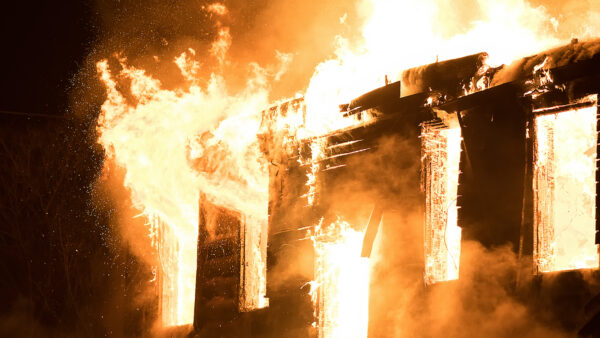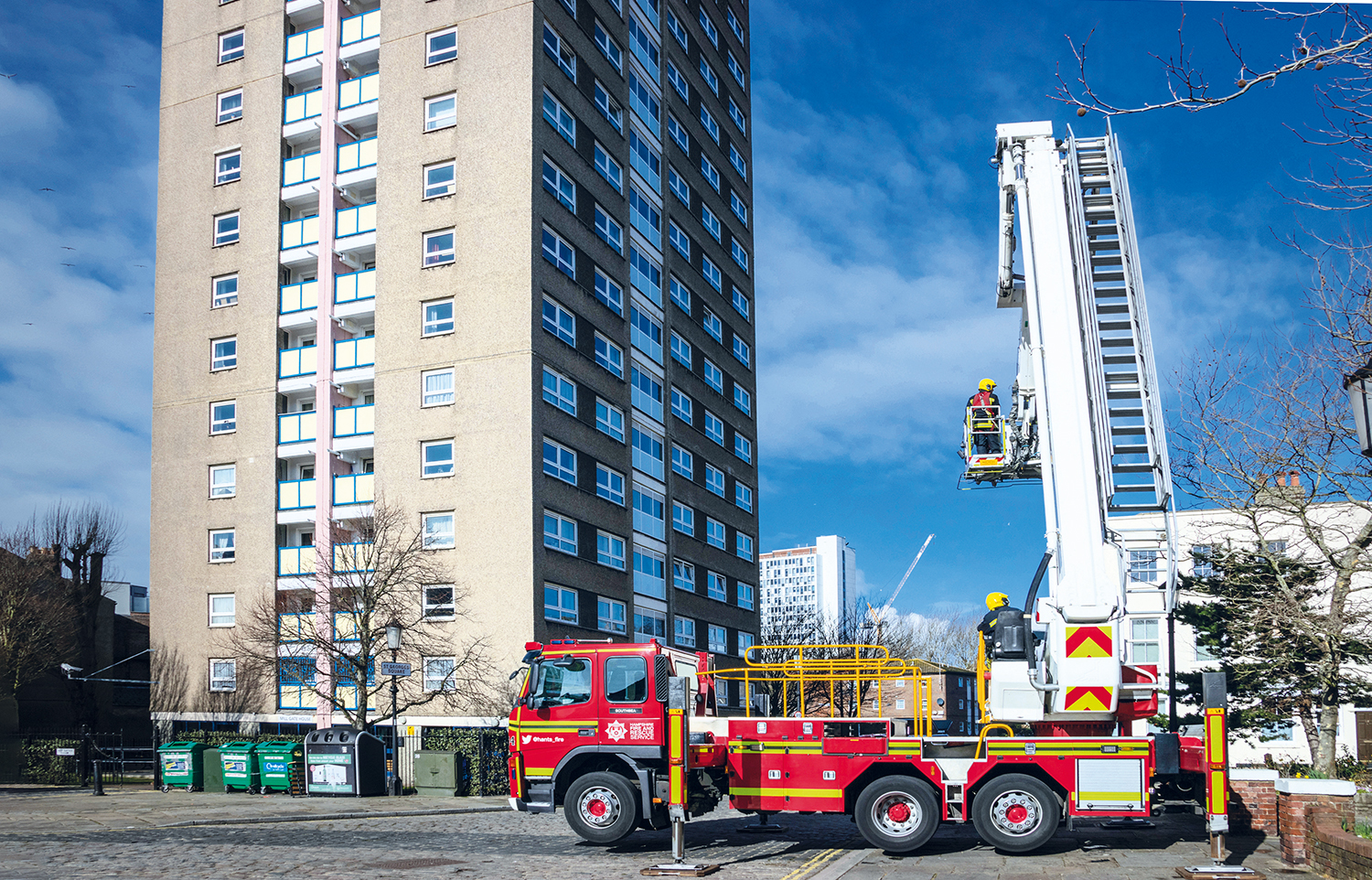
The 2017 Grenfell Tower that killed 72 people placed the spotlight firmly on building safety. It has spurred a wave of new legislation to ensure that such tragic events in high-rise blocks could never happen again.
The Grenfell fire unmasked systemic building failures in many facets of design, construction, regulation and housing management. Luckily, however, the number of incidents attended by fire and rescue services in purpose built blocks of flats and maisonettes has been declining over the past decade, according to government statistics for the year ending September 2023.
In the 12-month period to September 2023 there were 707 fires in purpose-built high-rise (10 or more storeys) flats or maisonettes. This was a decrease of 5% compared with the previous year (744) and of 13% compared with five years ago (810). Compared with 10 years ago (856) it shows a decrease of 17%.
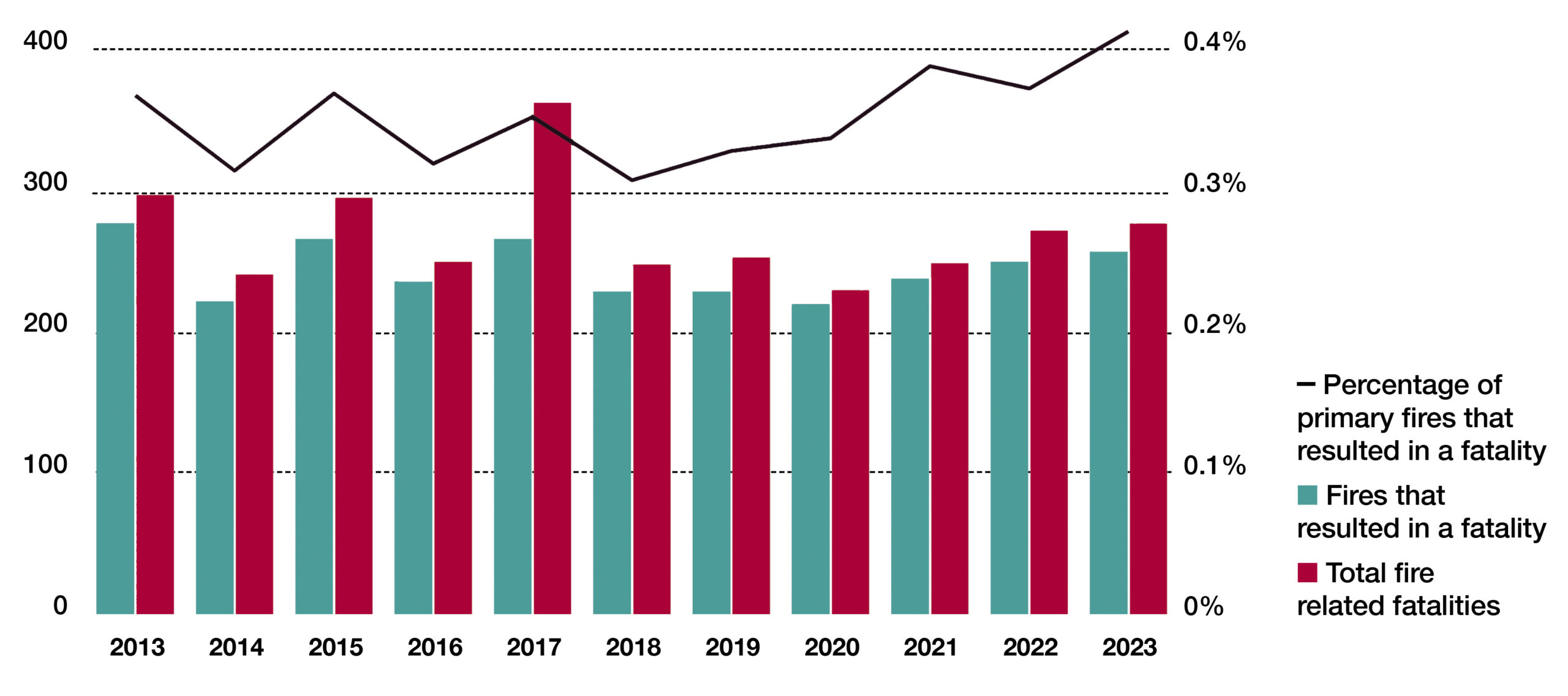
There were two fatal fires resulting in two fire-related fatalities in purpose-built high-rise flats or maisonettes, compared to four fatal fires with four fire-related fatalities in the previous year.
Over the five years to September 2023, fire and rescue services attended 3,800 fires in purpose-built high-rise (10+ storeys) flats or maisonettes. These resulted in 19 fatal fires and 21 fire-related fatalities.
This compared to a higher figure of 3,911 fires, resulting in 14 fatal fires and 84 fire-related fatalities, in the five years ending in September 2018. This five-year span included the 2017 Grenfell Tower fire.
On a downward trend
The number of non-fatal casualties in fires in England in these types of dwelling has been on a downward trend in the past decade. In the year ending September 2023, there were 6,205 non-fatal casualties, an increase of 0.9% compared with the previous year (6,149).
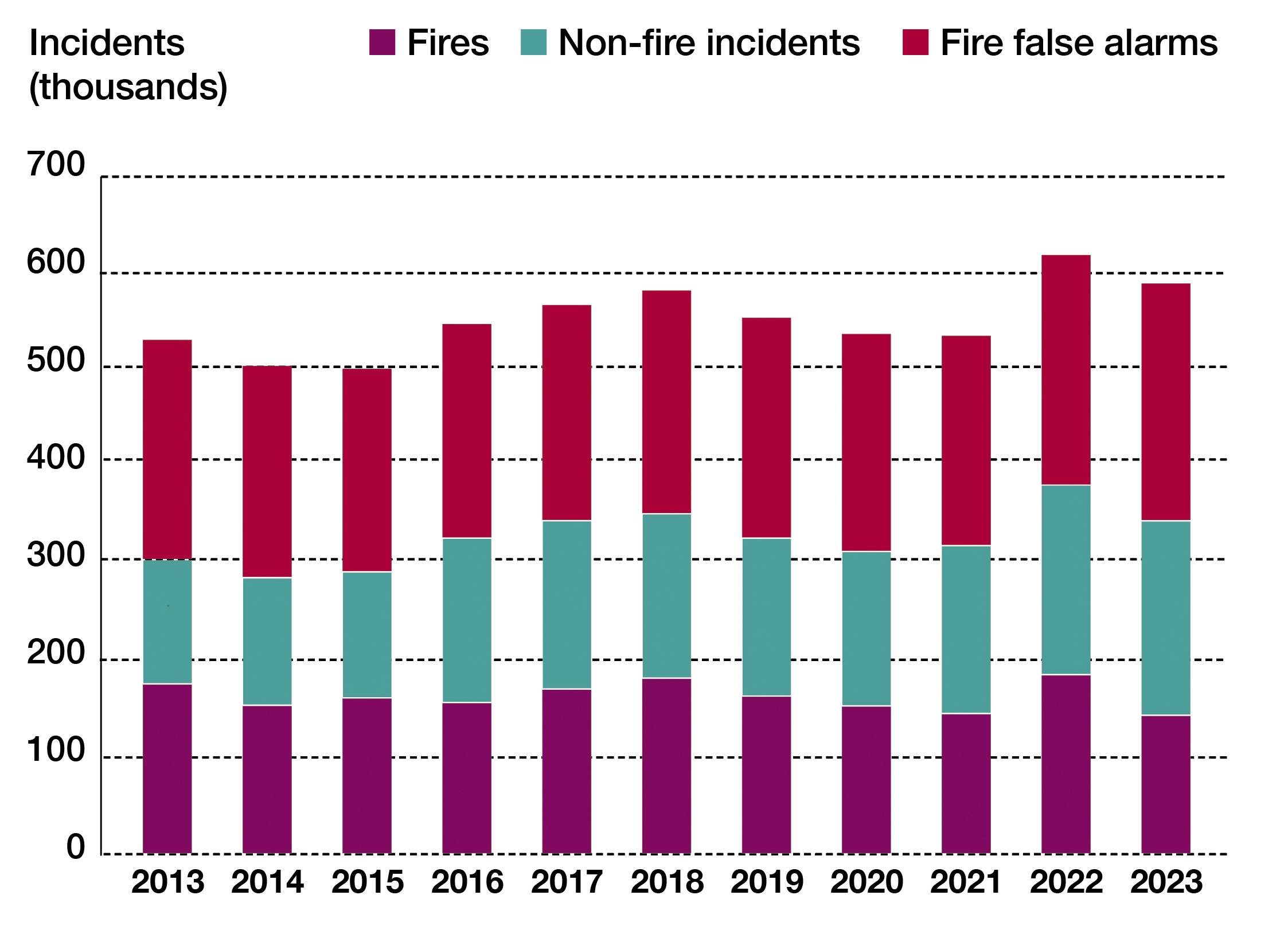
Across all types of buildings, in those 12 months there were 39,045 building fires (dwelling and other building fires), which made up 6.6% of all incidents attended by fire and rescue services, 27% of all fires and 62% of all primary fires. (Primary fires are those considered to be the most serious or with a threat to life or property.)
This reflects the changing mix of incidents and fire types within primary fires over the past decade. A decade ago, in the year ending September 2013, 9.4% of all incidents, 28% of all fires and 66% of all primary fires were building fires.
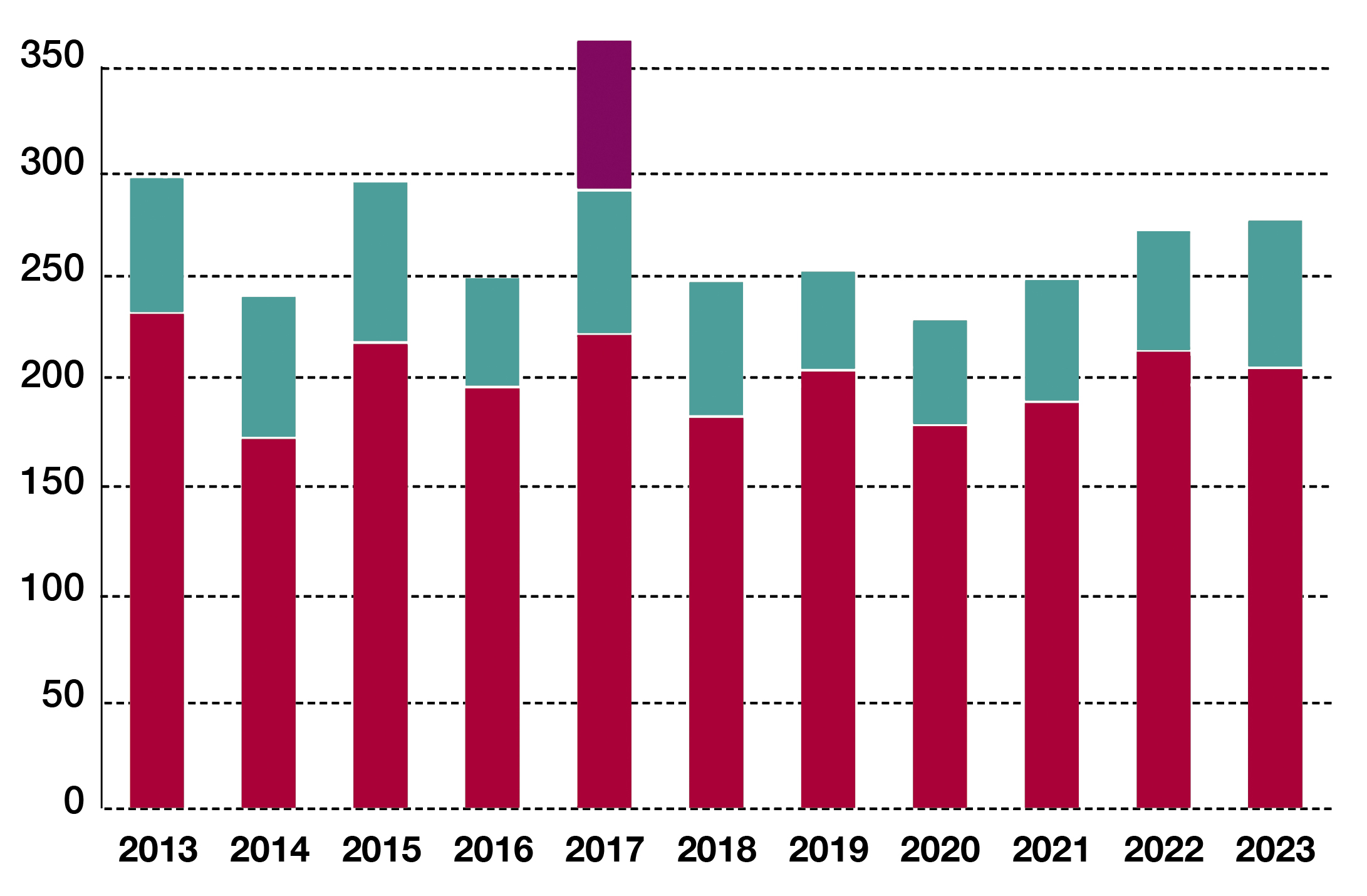
In the year ending September 2023 there were:
- 278 fire-related fatalities (an increase of 1.8% compared with 273 in the previous year);
- 208 fire-related fatalities in dwelling fires (a decrease of 3.7% compared with 216 in the previous year);
- 6,205 non-fatal casualties (an increase of 0.9% compared with 6,149 in the previous year); and
- 2,762 non-fatal casualties requiring hospital treatment (an increase of 12% on the 2,460 in the previous year).
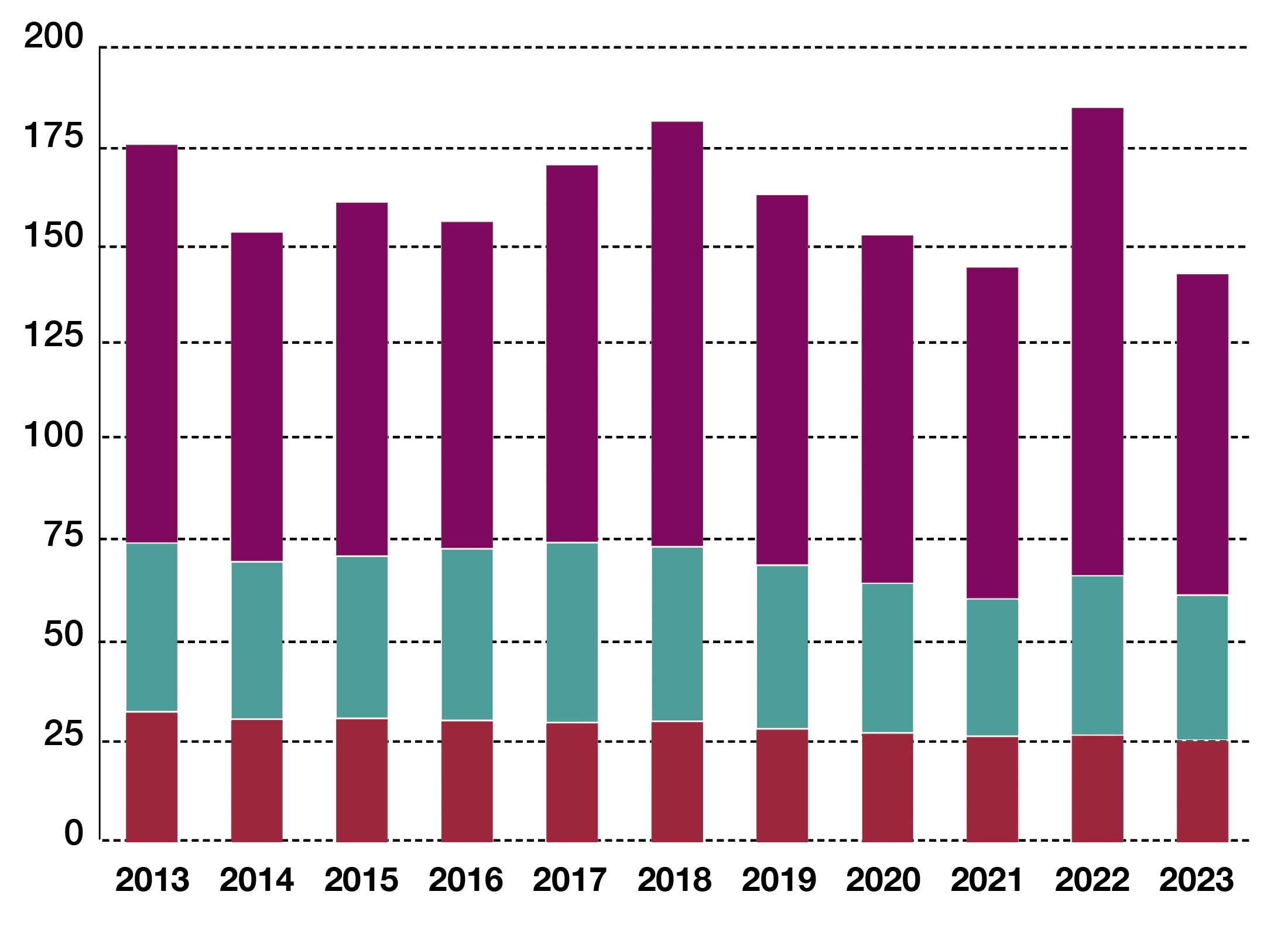
This article was first published on Project Safety Journal



